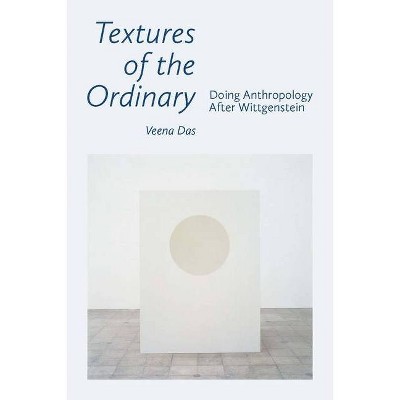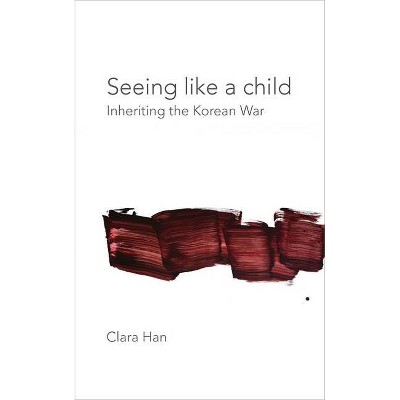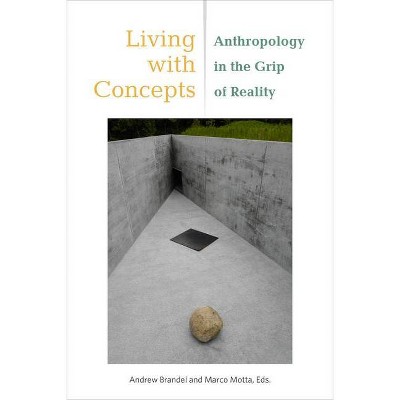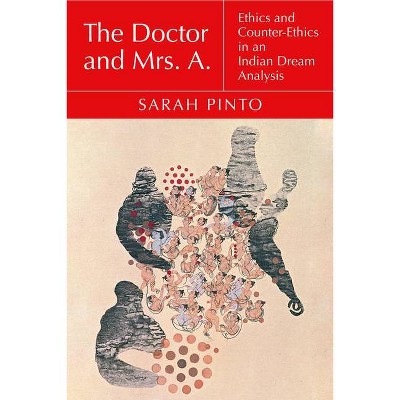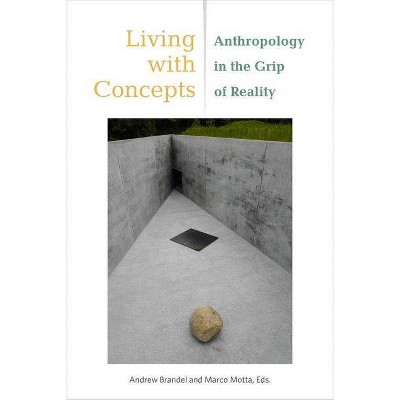Mixing Medicines - (Thinking from Elsewhere) by Tatiana Chudakova (Paperback)

Similar Products
Products of same category from the store
AllProduct info
<p/><br></br><p><b> About the Book </b></p></br></br><i>Mixing Medicines</i> is an ethnography of Russian medicine's attempts to recuperate indigenous therapeutic traditions associated with the state's ethnic and religious minorities. Based in Buryatia, a traditionally Buddhist region in southeastern Siberia, the book traces the uneven terrains of encounter between indigenous healing, the state, and transnational medical flows.<p/><br></br><p><b> Book Synopsis </b></p></br></br><p>Traditional medicine enjoys widespread appeal in today's Russia, an appeal that has often been framed either as a holdover from pre-Soviet times or as the symptom of capitalist growing pains and vanishing Soviet modes of life. <i>Mixing Medicines</i> seeks to reconsider these logics of emptiness and replenishment. Set in Buryatia, a semi-autonomous indigenous republic in Southeastern Siberia, the book offers an ethnography of the institutionalization of Tibetan medicine, a botanically-based therapeutic practice framed as at once foreign, international, and local to Russia's Buddhist regions. <p/>By highlighting the cosmopolitan nature of Tibetan medicine and the culturally specific origins of biomedicine, the book shows how people in Buryatia trouble entrenched center-periphery models, complicating narratives about isolation and political marginality. Chudakova argues that a therapeutic life mediated through the practices of traditional medicines is not a last-resort response to sociopolitical abandonment but depends on a densely collective mingling of human and non-human worlds that produces new senses of rootedness, while reshaping regional and national conversations about care, history, and belonging.</p><p/><br></br><p><b> From the Back Cover </b></p></br></br><p>"Tatiana Chudakova has given us a graceful ethnographic account that speaks to broad concerns within medical anthropology: the politics of 'integrative' medicine, the limitations of concepts such as 'medical pluralism, ' the relationship between religion and science as they cross various political and ideological domains, and the condition of post-socialism as a lived and embodied experience. <i>Mixing Medicines</i> is a remarkable contribution to Tibetan Studies and to anthropologies of post-socialist societies."--Sienna R. Craig, Dartmouth College <p/>"<i>Mixing Medicines</i> delves into the misunderstood and deeply Orientalized practice of Tibetan medicine. In this insightful and well-written ethnography, Tatiana Chudakova shows the elusiveness of Tibetan medicine as Siberia's Buryat minority seeks to maintain the practice's integrity and their status as a unique group while also striving to be a part of the Russian nation. Carefully researched and meticulously argued, <i>Mixing Medicines</i> offers a nuanced case for the intimate ties between today's Russia and Inner Asia."--Manduhai Buyandelger, Massachusetts Institute of Technology <p/>Traditional medicine enjoys widespread appeal in today's Russia, an appeal that has often been framed either as a holdover from pre-Soviet times or as the symptom of capitalist growing pains and vanishing Soviet modes of life. <i>Mixing Medicines</i> seeks to reconsider these logics of emptiness and replenishment. Set in Buryatia, a semi-autonomous indigenous republic in Southeastern Siberia, the book offers an ethnography of the institutionalization of Tibetan medicine, a botanically-based therapeutic practice framed as at once foreign, international, and local to Russia's Buddhist regions. <p/>By highlighting the cosmopolitan nature of Tibetan medicine and the culturally specific origins of biomedicine, the book shows how people in Buryatia trouble entrenched center-periphery models, complicating narratives about isolation and political marginality. Chudakova argues that a therapeutic life mediated through the practices of traditional medicines is not a last-resort response to sociopolitical abandonment but depends on a densely collective mingling of human and non-human worlds that produces new senses of rootedness, while reshaping regional and national conversations about care, history, and belonging. <p/><b>Tatiana Chudakova</b> is Assistant Professor of Anthropology at Tufts University.</p><p/><br></br><p><b> Review Quotes </b></p></br></br><br>"<i>Mixing Medicines</i> delves into the misunderstood and deeply Orientalized practice of Tibetan medicine. In this insightful and well-written ethnography, Tatiana Chudakova shows the elusiveness of Tibetan medicine as Siberia's Buryat minority seeks to maintain the practice's integrity and their status as a unique group while also striving to be a part of the Russian nation. Carefully researched and meticulously argued, <i>Mixing Medicines</i> offers a nuanced case for the intimate ties between today's Russia and Inner Asia."<b>---Manduhai Buyandelger, Massachusetts Institute of Technology, <i></i></b><br><br>"Tatiana Chudakova has given us a graceful ethnographic account that speaks to broad concerns within medical anthropology: the politics of 'integrative' medicine, the limitations of concepts such as 'medical pluralism, ' the relationship between religion and science as they cross various political and ideological domains, and the condition of post-socialism as a lived and embodied experience. <i>Mixing Medicines</i> is a remarkable contribution to Tibetan Studies and to anthropologies of post-socialist societies."<b>---Sienna R. Craig, Dartmouth College, <i></i></b><br><p/><br></br><p><b> About the Author </b></p></br></br><b>Tatiana Chudakova</b> is Assistant Professor of Anthropology at Tufts University. Her work has appeared in <i>American Ethnologist</i>, <i>Medical Anthropology Quarterly</i>, and <i>Comparative Studies in Society and History</i>. She is the recipient of the General Anthropology Division Prize for Exemplary Cross-Field Scholarship (2018).
Price History
Price Archive shows prices from various stores, lets you see history and find the cheapest. There is no actual sale on the website. For all support, inquiry and suggestion messages communication@pricearchive.us


